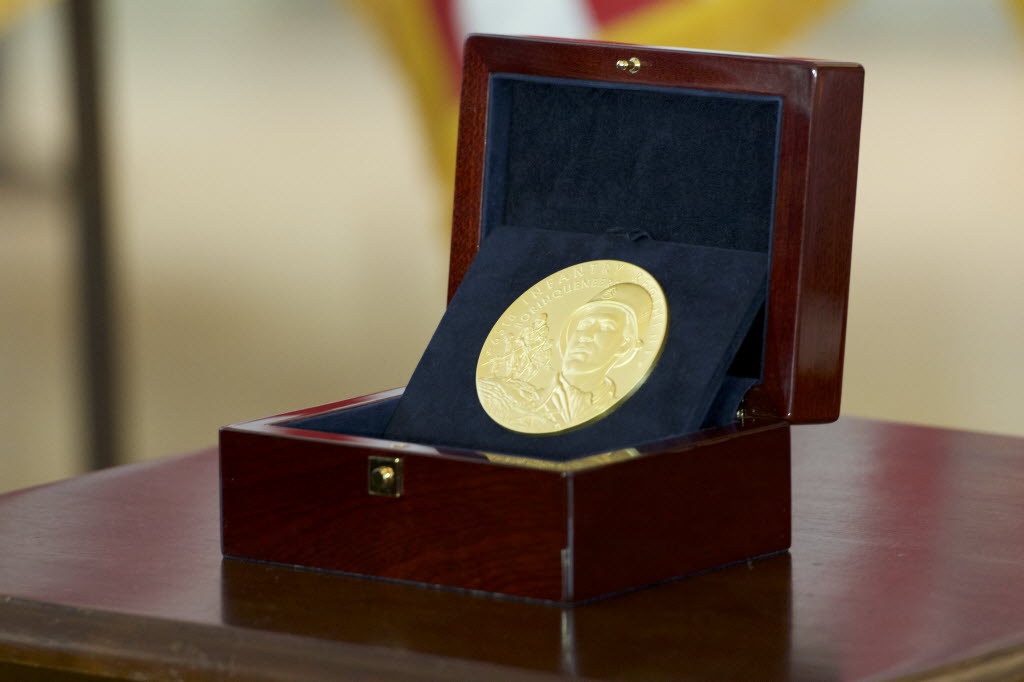WASHINGTON — Hours after arriving in Korea on a bitterly cold night in late 1950, Army private Victor Lopez-Nieves and his fellow Puerto Rican soldiers were given a perilous task.
![Puerto Rican veterans awarded Congressional Gold Medal [video : 82998170]](http://videos.usatoday.net/Brightcove2/29906170001/2016/04/29906170001_4844561028001_video-still-for-video-4844427893001.jpg?pubId=29906170001)
“They said, you’re going up front because the Chinese have broken the lines,”recalled Lopez-Nieves of San Antonio. “So they put us on a vehicle, took us out front, and told us to get in that trench. ‘Anything that moves you fire at.’ I’d never been anywhere myself. But my God, we closed the breach.”
The soldiers in that all-Puerto Rican unit, known as the Borinqueneers, played a critical role in the now-famous Battle of Chosin Reservoir, saving the lives of countless Marines trapped by enemy advances. They also helped build the legend of the Army’s 65th Infantry Regiment.
On Wednesday, congressional leaders awarded members of the historic combat unit a Congressional Gold Medal in a ceremony — held inside the U.S. Capitol's Emancipation Hall — that seemed part pageant and part homecoming.
The event also offered a chance to make amends for a shameful chapter in the country's military past.
Formed in 1899 a year after U.S. seized Puerto Rico from Spain, the Borinqueneers (pronounced bo-RINK-ah-NEERS) faced harsh discrimination even as they were ordered to tackle some of the Army’s most dangerous assignments in both World Wars and Korea.
“You were fighting for freedom while being deprived of it in many cases back home,” House Democratic Leader Nancy Pelosi told the surviving members, many of them in wheelchairs, who traveled across the country to take part in Wednesday's ceremony.
The group drew its name from what the Taino indians called their island home — Borinquen — before it became known as Puerto Rico. Over time, their exploits made them synonymous with other ethnically identifiable military units such as the Tuskegee Airmen and the Navajo Code Talkers.
![Obama honors troops from segregation era [oembed : 83001652] [oembed : 83001652] [oembed : 83001652] [oembed : 83001652] [oembed : 83001652] [oembed : 83001652] [oembed : 83001652] [oembed : 83001652]](/Portals/_default/Skins/PrestoLegacy/CommonCss/images/smartembed.png)
![Bush, Congress honor Tuskegee airmen - USATODAY.com [oembed : 82980074] [oembed : 82980074] [oembed : 82980074] [oembed : 82980074] [oembed : 82980074] [oembed : 82980074] [oembed : 82980074] [oembed : 82980074]](/Portals/_default/Skins/PrestoLegacy/CommonCss/images/smartembed.png)
The regiment earned nine Distinguished Service Crosses, approximately 250 Silver Stars, over 600 Bronze Stars, and more than 2,700 Purple Hearts for its service in Korea alone.
Gen. Douglas MacArthur, who commanded allied forces in Korea, lauded the Borinqueneers' determination and courage.
“They are writing a brilliant record of heroism in battle and I am indeed proud to have them under my command,” he wrote in 1951. “I wish that we could count on many more like them.”
Arcadio Santiago-Rodriguez, a 92-year-old Borinqueneer from Palm Bay, Fla., remembers the day MacArthur visited the front lines and shared a cup of coffee with some Puerto Rican soldiers.
More than 60 years later, the two-time recipient of the Silver Star award for valor reflected on the long-overdue recognition of the sacrifices made by him and his fellow warriors.
“I feel so proud to be in the 65th Infantry, to be a Borinqueneer today,” Santiago-Rodriguez said. “And to be a Puerto Rican.”
Follow @ledgeking on Twitter.


![635961683099755849-GOLDMEDAL-BORINQUENEERS2.JPG [image : 83003870]](http://www.gannett-cdn.com/-mm-/2d487ee15ac945a038666609a62a1c52ed7bdb93/c=232-0-1231-854/local/-/media/2016/04/13/USATODAY/USATODAY/635961683099755849-GOLDMEDAL-BORINQUENEERS2.JPG)

![The 65th Infantry regiment receives Congressional Gold Medal [gallery : 83004426]](http://www.gannett-cdn.com/-mm-/c72e69dad95d792dbba20e34a70a75759d8e2d8b/c=571-309-1299-932/local/-/media/2016/04/13/USATODAY/USATODAY/635961695176105261-MEDAL001.JPG)
